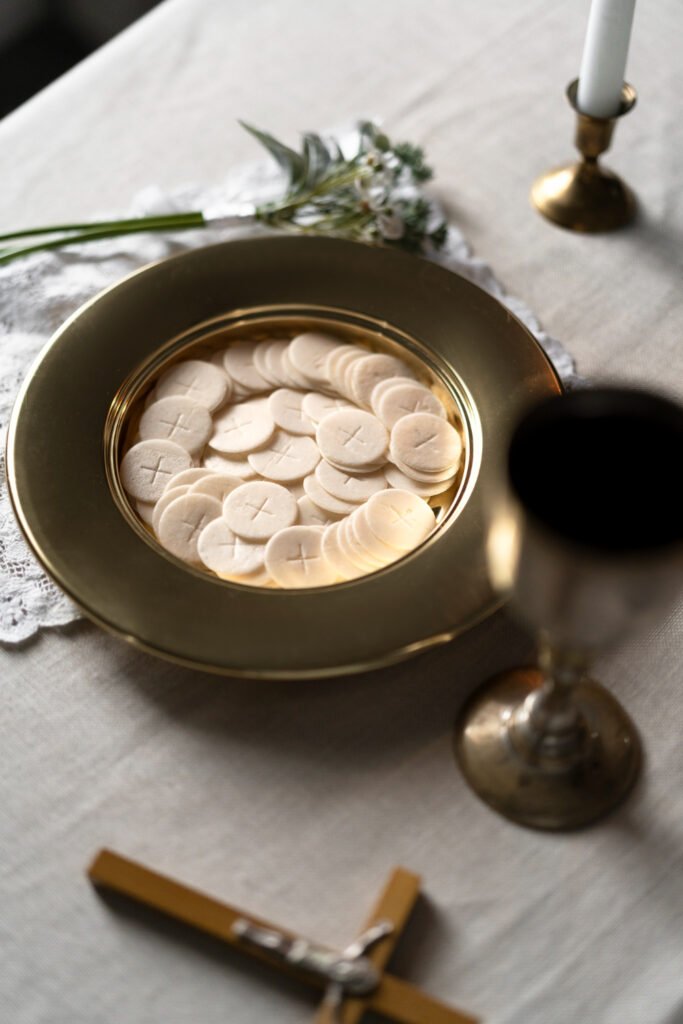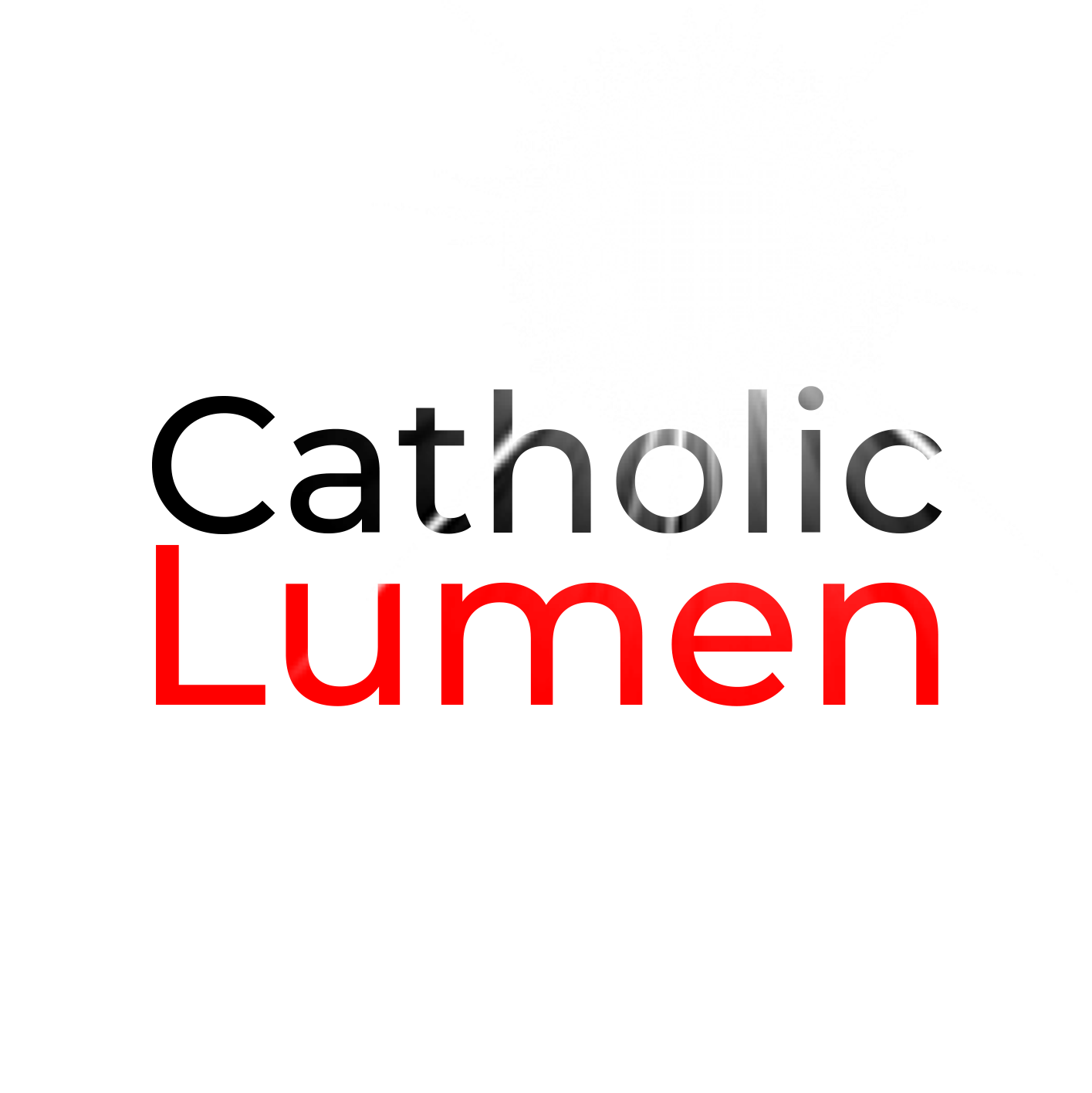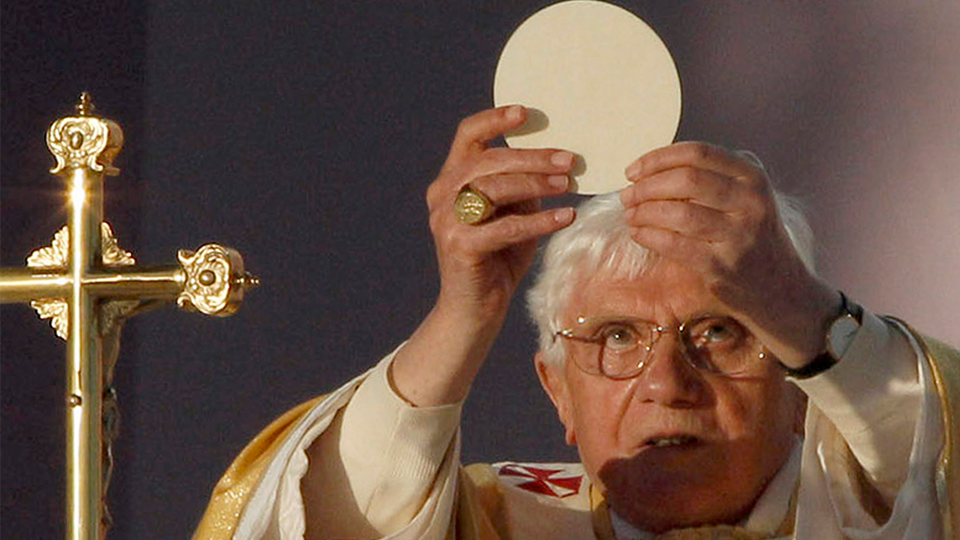Introduction
In the heart of Catholic worship lies a sacrament that transcends time and space, bringing believers into a profound encounter with the living Christ—the Eucharist. This sacred ritual, rooted in biblical teachings and apostolic tradition, holds a central place in the Catholic faith, representing the very essence of communion with God. In this exploration, we delve into the rich Catholic perspective on the Eucharist, drawing insights from scripture to illuminate the significance of this holy sacrament.
Biblical Foundations
The roots of the Eucharist can be traced back to the Last Supper, a moment eternally embedded in the heart of Christian spirituality. In the Gospel of Matthew (26:26-28), we find Jesus taking bread, blessing it, and giving it to his disciples, saying, “Take, eat; this is my body.” Similarly, he took the cup, gave thanks, and shared it among them, saying, “Drink from it, all of you; for this is my blood of the covenant, which is poured out for many for the forgiveness of sins.”
These words, spoken by the incarnate Son of God, mark the institution of the Eucharist, a sacrament that transcends the boundaries of time and space, allowing every believer to participate in the very act that inaugurated the New Covenant. Through the ritual of the Eucharist, Catholics believe that the bread and wine become the real body and blood of Christ—a mystery known as transubstantiation.
Partaking in the Divine Feast
When Catholics gather for the celebration of the Mass, they partake in a profound spiritual feast that goes beyond mere symbolism. The Eucharist is not a reenactment but a mystical participation in the very sacrifice of Christ on the cross. As St. Paul writes in his first letter to the Corinthians (11:23-26), “For I received from the Lord what I also handed on to you, that the Lord Jesus, on the night he was handed over, took bread, and, after he had given thanks, broke it and said, ‘This is my body that is for you. Do this in remembrance of me.'”
In this passage, St. Paul underscores the essential nature of the Eucharistic celebration as a remembrance that transcends a mere recollection of past events. It is a living memorial, an active participation in the very sacrifice of Christ, wherein believers unite with him in a mystical union that spans time and space.
Nourishment for the Journey
The Eucharist, as the spiritual food for the journey of faith, provides strength, sustenance, and grace to navigate the challenges of life. In the Gospel of John (6:51), Jesus declares, “I am the living bread that came down from heaven. Whoever eats of this bread will live forever, and the bread that I will give for the life of the world is my flesh.” Here, Jesus emphasizes the life-giving nature of the Eucharist, portraying it as essential nourishment for the soul.

Catholics believe that in consuming the consecrated bread and wine, they receive not only a symbolic representation but the very substance of Christ’s body and blood. This divine nourishment fortifies believers on their spiritual journey, providing grace, strength, and the promise of eternal life.
Unity in the Body of Christ
The Eucharist serves as a powerful symbol of unity within the Body of Christ—the Church. St. Paul, in his first letter to the Corinthians (10:16-17), writes, “The cup of blessing that we bless, is it not a participation in the blood of Christ? The bread that we break, is it not a participation in the body of Christ? Because there is one bread, we who are many are one body, for we all partake of the one bread.”
In these verses, St. Paul emphasizes the communal aspect of the Eucharist, highlighting its role in fostering unity among believers. As participants partake in the one bread and one cup, they symbolically express their oneness in Christ, transcending individual differences and forming a united, mystical body.
Conclusion
The Eucharist stands as a sacred testament to the profound mystery of God’s love, inviting believers into a divine encounter with the living Christ. Through its rich biblical foundations, the Eucharist serves as a tangible link to the Last Supper, where Jesus instituted this sacrament as a perpetual source of grace for the Church.
As Catholics partake in the Eucharistic celebration, they enter a spiritual feast that transcends the confines of time and space. The words of Jesus, echoed by St. Paul and other biblical authors, resound through the liturgy, reminding believers of the transformative power of this sacrament. The Eucharist is not a mere symbol or memorial; it is a profound participation in the sacrifice of Christ, offering nourishment for the journey, unity within the Body of Christ, and a foretaste of the heavenly banquet.
In embracing the Catholic perspective on the Eucharist, believers are called to approach this sacred mystery with awe, reverence, and a deep sense of gratitude. The Eucharist is not just a ritual; it is a divine encounter that sustains, unites, and propels the faithful forward on their journey of faith.

